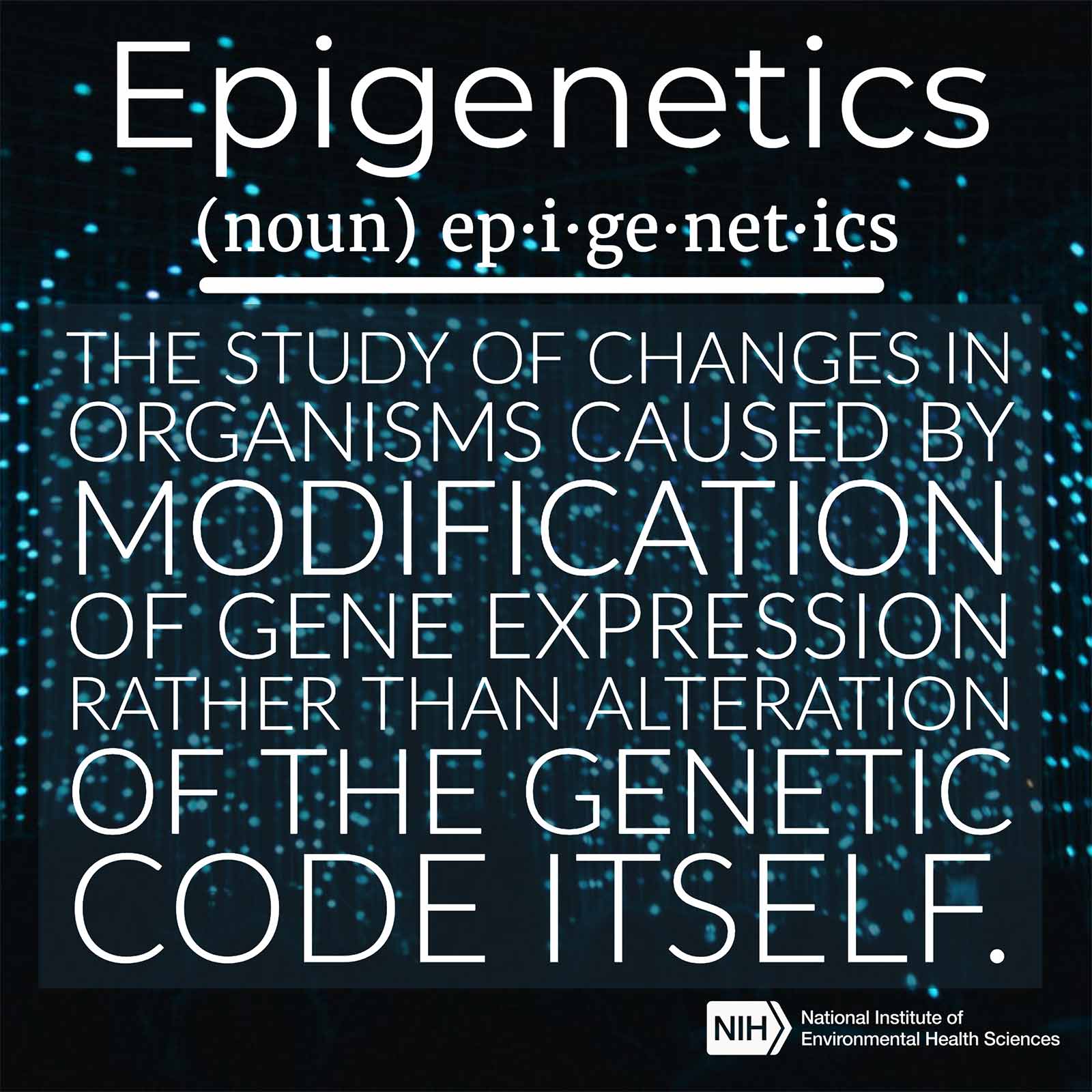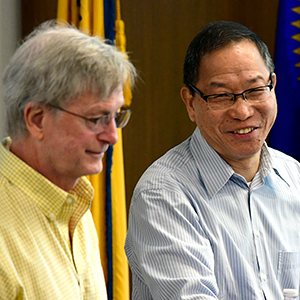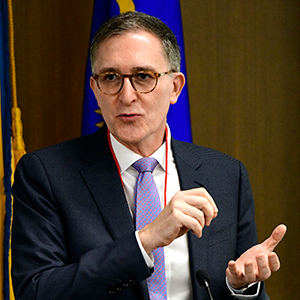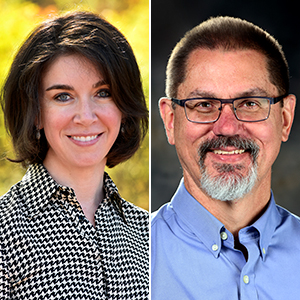National Institutes of Health (NIH) Director Francis Collins, M.D., Ph.D., announced selection of Richard (Rick) Woychik, Ph.D., to serve as director of NIEHS. Woychik was acting director of NIEHS from October 2019 until June 7, the official start of his new role.
“Innovation has been a hallmark of Rick’s scientific career and it’s at the center of his vision for leading NIEHS,” said Collins. “He will be working to support new technologies and scientific approaches throughout the field of environmental health sciences — applying his proven skills in scientific excellence, creativity, and rigor to improving public health.”
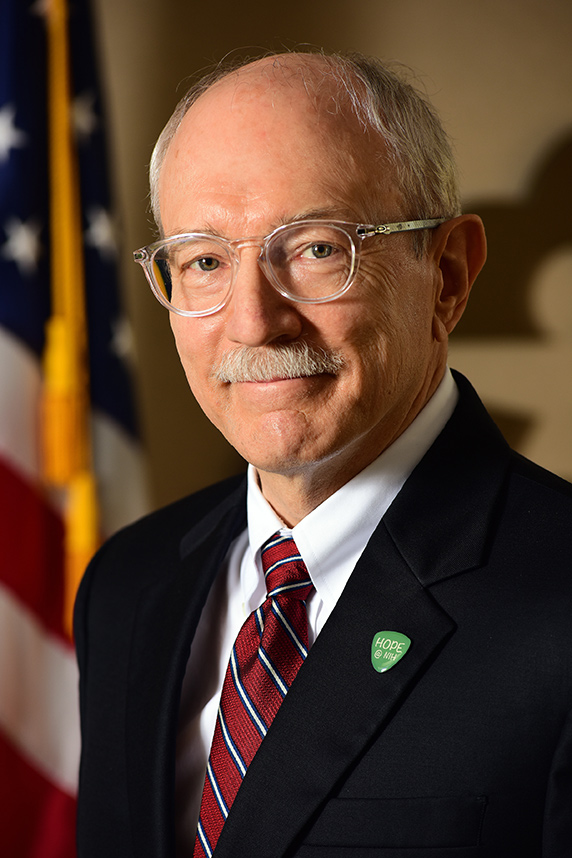 Woychik’s accomplishments as acting director included leading the institute during the novel coronavirus pandemic, administering both research and operational responses. (Photo courtesy of Steve McCaw)
Woychik’s accomplishments as acting director included leading the institute during the novel coronavirus pandemic, administering both research and operational responses. (Photo courtesy of Steve McCaw)As NIEHS director, Woychik takes on additional responsibility as director of the National Toxicology Program (NTP), which reports directly to the U.S. Department of Health and Human Services. NTP coordinates toxicology research among NIEHS, the National Center for Toxicological Research at the U.S. Food and Drug Administration, and the National Institute for Occupational Safety and Health at the Centers for Disease Control and Prevention.
Environmental epigenetics, mammalian genetics
Woychik is highly respected for a long list of accomplishments in environmental epigenetics and mammalian genetics. His laboratory discovered that mutations in a gene that codes for a protein in a class called protocadherins interfered with mammalian hearing. This gene was ultimately linked to hearing loss in Cushing’s disease patients.
Other firsts included identifying a gene associated with polycystic kidney disease, and the first cloning of an obesity-related gene called agouti. Woychik’s passion for epigenetics and environmental health sciences is rooted in his research group’s discovery that the obesity trait associated with an agouti mutant mouse line was influenced during embryonic development by the epigenome.
Priority on individual variability
Woychik said he will explore opportunities to embrace new technologies and implement state-of-the-art and potentially transformative scientific approaches for the NIEHS research enterprise. “I am particularly interested in better integrating environmental health sciences into the All of Us Research Program and Precision Medicine programs at NIH,” he wrote in an email to employees.
He added that achieving insights into the molecular mechanisms of toxicity and other physical responses to environmental exposures will be fundamental to improving risk assessments of human health impacts.
“Individuals, with their unique biological make-up, respond to the environment in different ways. Our current research strategies mostly employ a one-size-fits-all approach that does not factor in this critically important variable,” Woychik explained. “One important element of my vision for the institute is to deal with individual genetic, epigenetic, and biological variability when establishing research strategies for studying public health and environmental toxicology.”
Leadership expertise
Woychik earned his Ph.D. in molecular biology in 1984 from Case Western Reserve University in Cleveland. He moved into the field of molecular genetics during postdoctoral training in the lab of the late Philip Leder, M.D., in Harvard Medical School Department of Genetics.
In 2010, he moved to NIEHS in the role of deputy director, bringing basic science expertise in using genetics and epigenetics to study the influence of the environment. Woychik successfully led strategic planning exercises and guided implementation across a broad range of scientific disciplines. In nearly a decade of leadership at NIEHS, he built an in-depth awareness of and appreciation for the broad range of scientific activities — such as toxicology, epidemiology, and more — that are necessary to effectively support the environmental health sciences community.
That experience contributes to the wealth of knowledge he brings to his new role. Prior to NIEHS, Woychik served nearly 10 years as president and CEO of The Jackson Laboratory in Bar Harbor, Maine, where he established a robust record of achievements.
- Oversaw seven major building projects in Maine and California.
- Enhanced the organization’s focus on basic mechanistic research in model organisms, with a focus on translation to human health and disease.
- Established the Genetics Resource Science division.
- Oversaw a major realignment of the nonprofit business unit to substantially improve efficiency and outreach to the global biomedical community.
Citations:
Alagramam KN, Murcia CL, Kwon HY, Pawlowski KS, Wright CG, Woychik RP. 2001. The mouse Ames waltzer hearing-loss mutant is caused by mutation of Pcdh15, a novel protocadherin gene. Nat Genet. 27:99–102.
Bultman SJ, Michaud EJ, Woychik RP. 1992. Molecular characterization of the mouse agouti locus. Cell 71(7):1195–1204.
Moyer JM, Lee-Tischler MJ, Kwon HY, Schrick JJ, Avner ED, Sweeney WE, Godfrey VL, Cacheiro NL, Wilkinson JE, Woychik RP. 1994. Candidate gene associated with a mutation causing recessive polycystic kidney disease in mice. Science 264:1329–1333.
(Christine Bruske Flowers is director of the NIEHS Office of Communications and Public Liaison.)





